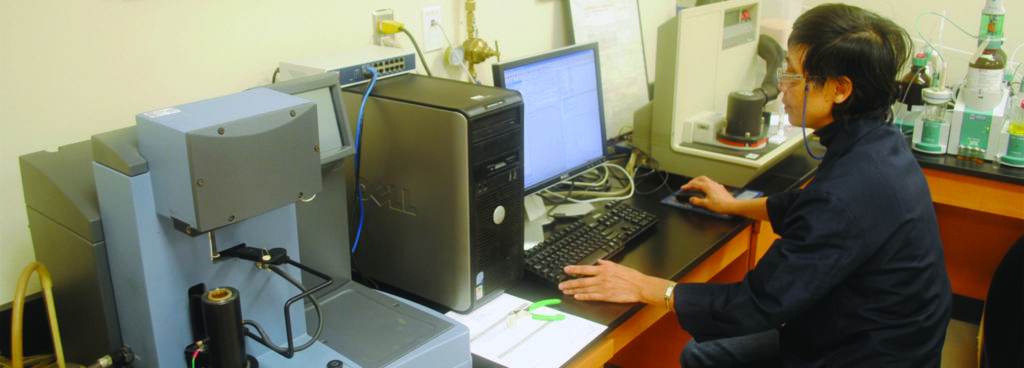Determine the content and properties of your materials with TGA analysis from the ATS chemical analysis lab.
What is Thermogravimetric Analysis?
TGA analysis, also commonly referred to as thermogravimetric analysis, is a procedure that helps determine various properties of a particular material, such as the amount of weight lost during heating and cooling, endothermic properties, and exothermic properties. Because of its comprehensive nature and overall versatility, it is often used to analyze a wide range of different materials, including:
- Polymers
- Laminates
- Composites
- Rubbers
- Elastomers
- Fillers
- Ash Content
- Kinetic Studies
How The Method Works
At its core, TGA analysis is designed to provide your organization with a much deeper level of knowledge regarding the change in mass of a particular material as a function of both time and temperature. The test method involves heating a sample at a specific heating rate from ambient to 1,000°C in nitrogen or air and then calculating the resulting weight losses that may be due to moisture, semi-volatile compounds, polymer degradation, carbon black, and ash content.
Thermogravimetric Standards
Thermogravimetric analysis is a recommended component of multiple ASTM and ISO standards, including:
- ASTM E1131
- ASTM D3850
- ASTM D6370
- ASTM D6375
- ASTM E2550
- ASTM E1868
- ASTM E1641
- ISO 11358
ATS and TGA Analysis
ATS’ TGA analysis services are performed by highly trained and educated professionals, many of whom hold multiple accreditations and certifications between them. Regardless of the type of material they’re working with or the particular client, the end goal is always the same: to help clients make informed decisions regarding research and development, quality control, and failure analysis.
Related Services
- Thermogravimetric Analysis (TMA)
- Fourier Transform Infrared Spectroscopy (FTIR)
- Gas Chromatography/Mass Spectroscopy (GC/MS)
Contact Us
Call +1 (888) 287-5227 or click here to request thermogravimetric analysis from ATS.



